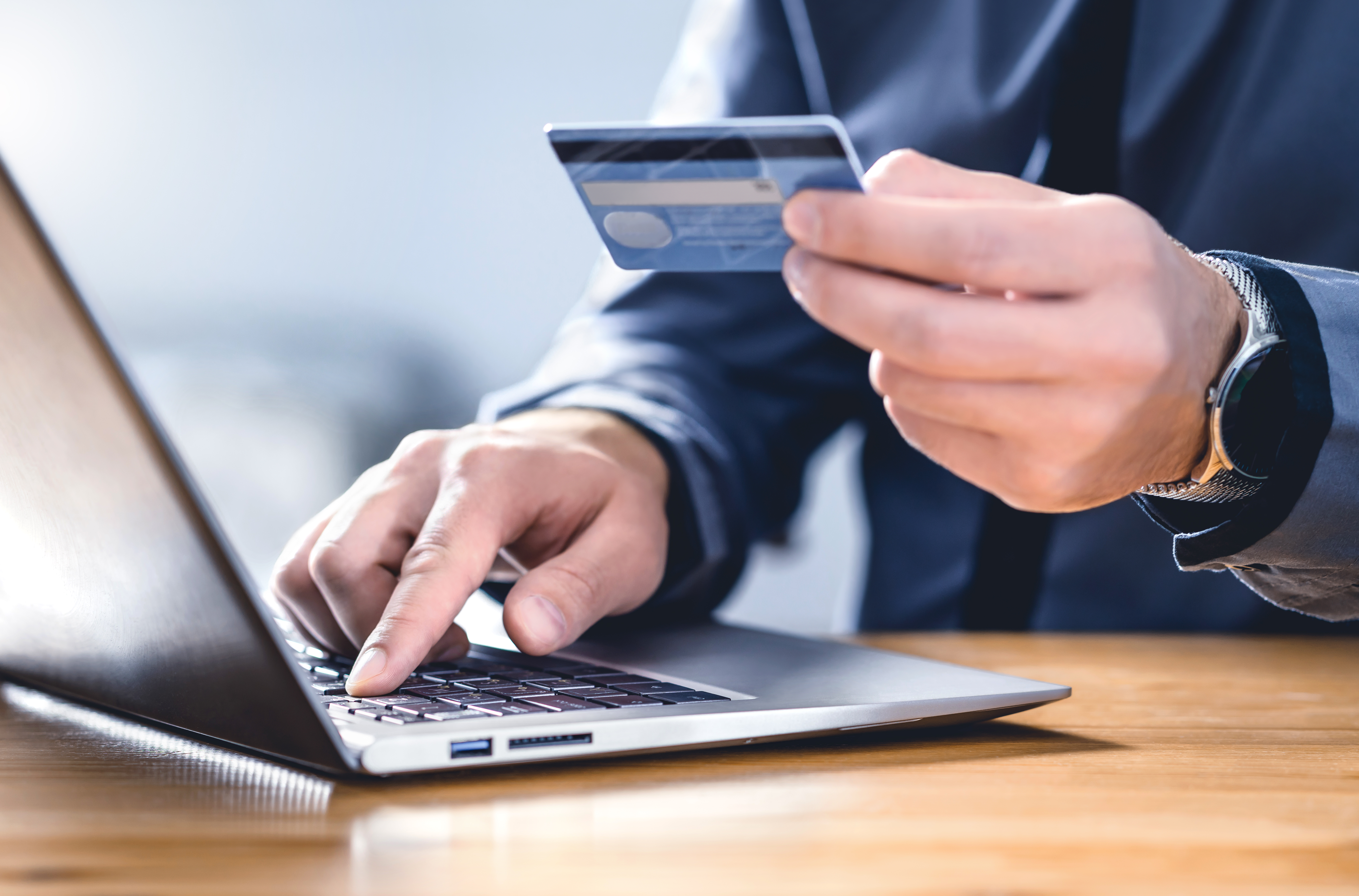Online Scams: FBI Says Losses Reached $16.6 Billion!
Online Scams Explode: FBI Reports $16.6 Billion Stolen!
Introduction: A Cybercrime Tsunami
Hold on to your hats, folks! The FBI just dropped a bombshell: online scams raked in a staggering $16.6 billion last year. Yes, you read that right. That’s more than some countries' entire GDP! This alarming figure, revealed in the FBI's annual Internet Crime Complaint Center (IC3) report, isn't just a number; it's a stark warning about the escalating sophistication and prevalence of cybercrime. Remember the good old days when you only had to worry about spam emails from Nigerian princes? Those days are long gone.
This represents a significant jump from the $12.5 billion reported in 2023. What's driving this surge? Well, the report points to the rise of cryptocurrency scams and those preying on older Americans. But here's the kicker: even this massive number is likely an undercount! It only reflects reported incidents. How many people just shrug it off, too embarrassed to admit they were duped, or simply don't know where to turn? That's a scary thought.
The Underreported Reality of Cybercrime
The IC3 received 859,532 complaints last year. That's a lot of fingers pointed at cybercriminals, but as Deputy Assistant Director Cynthia Kaiser pointed out, "It's hard to have numbers tell the full story of what might be occurring across the cybercriminal ecosystem." Think of it like the tip of an iceberg; what we see is just a fraction of the total mass lurking beneath the surface. People may be hesitant to report crimes, especially those that involve shame or embarrassment.
Who are the Victims?
Older Americans in the Crosshairs
The report highlights a particularly vulnerable group: older Americans. Why? They may be less tech-savvy, more trusting, and often have significant savings. Scammers know this and are actively targeting them with sophisticated schemes. Imagine a grandparent receiving a convincing email from someone posing as a grandchild in dire need of money. It’s heartbreakingly effective.
Cryptocurrency: A Double-Edged Sword
Cryptocurrency, with its decentralized nature and potential for anonymity, has become a playground for scammers. While legitimate uses for crypto abound, its unregulated aspects make it attractive to those seeking to fleece unsuspecting investors. It’s like the Wild West, but instead of horses and saloons, we have blockchains and phishing emails.
Common Types of Online Scams
Phishing: The Classic Bait-and-Switch
Phishing scams are as old as the internet itself, but they're constantly evolving. These scams involve tricking individuals into divulging sensitive information like passwords, credit card numbers, and social security numbers. The key is to always be skeptical of unsolicited emails or messages asking for personal information. If something seems fishy, it probably is!
Romance Scams: Preying on Hearts and Wallets
Romance scams are particularly cruel, as they involve building emotional connections with victims before swindling them out of their money. Scammers often create fake profiles on dating sites or social media, and then slowly groom their victims. It’s like a twisted love story with a very unhappy ending.
Investment Scams: Promises Too Good to Be True
If an investment opportunity sounds too good to be true, it probably is. Scammers often lure victims with promises of high returns and low risk, only to disappear with their money. Remember the old adage: if it seems too good to be true, it probably is! Do your research and consult with a qualified financial advisor before investing in anything.
Business Email Compromise (BEC): Targeting Businesses
BEC scams target businesses, often by impersonating executives or vendors. Scammers will send emails instructing employees to transfer funds to fraudulent accounts. These scams can result in massive financial losses for companies. Training employees to recognize and report suspicious emails is crucial.
The Global Reach of Cybercrime
Cybercrime knows no borders. Scammers can operate from anywhere in the world, making it difficult for law enforcement to track them down and bring them to justice. This global reach also means that victims can be located anywhere, making it a truly international problem. It’s like trying to catch smoke with your bare hands.
Protecting Yourself from Online Scams
Strengthening Your Passwords
Use strong, unique passwords for all of your online accounts. Avoid using easily guessable passwords like your birthday or pet's name. A password manager can help you generate and store strong passwords securely. Think of your passwords as the locks on your digital doors. The stronger the lock, the harder it is for thieves to break in.
Enabling Multi-Factor Authentication (MFA)
MFA adds an extra layer of security to your accounts by requiring a second form of verification, such as a code sent to your phone, in addition to your password. Even if a scammer gets your password, they won't be able to access your account without the second factor. It’s like having two locks on your digital door instead of one.
Being Wary of Suspicious Emails and Links
Be skeptical of unsolicited emails and links, especially those asking for personal information. Always double-check the sender's address and be wary of any grammatical errors or typos. Never click on links in suspicious emails, as they may lead to phishing sites or malware. When in doubt, go directly to the website in question.
Keeping Your Software Up to Date
Software updates often include security patches that fix vulnerabilities that scammers can exploit. Make sure to keep your operating system, web browser, and other software up to date. It’s like giving your digital armor a regular upgrade.
Reporting Scams to the FBI
If you've been a victim of an online scam, report it to the FBI's Internet Crime Complaint Center (IC3). While the FBI may not be able to recover your lost money, reporting the scam can help them track down the perpetrators and prevent others from becoming victims. It's like joining forces to fight back against the bad guys.
The Role of Law Enforcement
Law enforcement agencies are working hard to combat cybercrime, but they face significant challenges. Scammers are constantly evolving their tactics, and it can be difficult to track them down across international borders. However, with increased collaboration and technological advancements, law enforcement is making progress in the fight against cybercrime. They are the digital detectives of the 21st century.
The Future of Cybercrime
Unfortunately, cybercrime is likely to continue to evolve and become more sophisticated in the years to come. As technology advances, scammers will find new ways to exploit vulnerabilities. Staying informed and taking proactive steps to protect yourself is more important than ever. We must be vigilant and adaptable to keep up with the ever-changing landscape of cybercrime.
The Impact on the Economy
The $16.6 billion lost to online scams represents a significant drain on the economy. This money could have been used for productive purposes, such as creating jobs or investing in new technologies. Cybercrime also damages consumer confidence and can discourage people from engaging in online commerce. It is a thief in the night, robbing us all of our potential.
Conclusion: Stay Vigilant, Stay Safe
The FBI's report is a wake-up call. Online scams are a serious and growing threat. By understanding the risks and taking proactive steps to protect ourselves, we can all help to reduce our vulnerability to cybercrime. Remember to use strong passwords, enable multi-factor authentication, be wary of suspicious emails and links, keep your software up to date, and report scams to the FBI. Stay vigilant, stay informed, and stay safe in the digital world.
Frequently Asked Questions
Here are some frequently asked questions about online scams:
- What should I do if I think I've been scammed?
Immediately report the scam to the FBI's Internet Crime Complaint Center (IC3). Also, contact your bank and credit card companies to alert them of the situation. Change all of your passwords and monitor your accounts for suspicious activity.
- How can I tell if an email is a phishing scam?
Look for telltale signs such as poor grammar, typos, urgent requests for personal information, and mismatched sender addresses. If in doubt, contact the company directly to verify the email's authenticity.
- Is it safe to use public Wi-Fi?
Public Wi-Fi networks are often unsecured, making them vulnerable to hackers. Avoid transmitting sensitive information, such as passwords or credit card numbers, while using public Wi-Fi. Consider using a VPN (Virtual Private Network) to encrypt your internet traffic.
- What is multi-factor authentication, and how does it work?
Multi-factor authentication (MFA) adds an extra layer of security to your online accounts by requiring a second form of verification, such as a code sent to your phone, in addition to your password. This makes it much harder for scammers to access your account, even if they have your password.
- Can I get my money back if I've been scammed?
Unfortunately, recovering money lost to online scams can be difficult. However, you should report the scam to the FBI and your financial institutions. They may be able to help you recover some or all of your losses. The sooner you report the scam, the better your chances of recovery.

